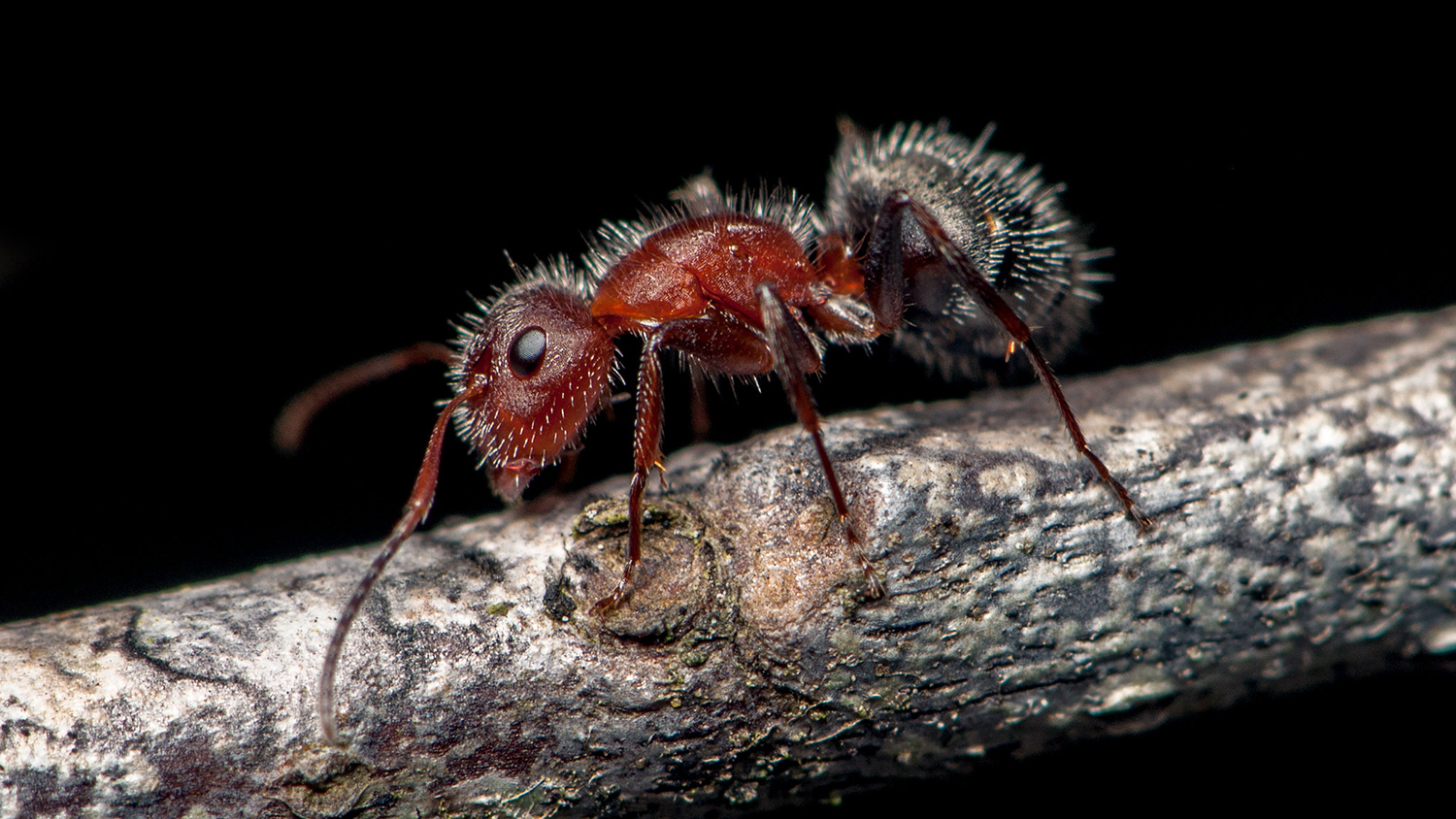
By Gabi Camacho and Carol Loss
Postdoctoral Research Fellows, Madagascar Ant Microendemism
Imagine traveling to Madagascar, an island with remarkable biodiversity, best-known for its lemurs, baobabs, colorful chameleons and frogs, strange insects and plants.
Now imagine experiencing this extraordinary place not only as a passing traveler, but by being immersed in studying the island's distinctive natural history and fauna, exploring rainforest treetops while learning tree climbing techniques. This is what the Ants & Canopy Bootcamp is offering a group of undergraduate students from the United States and Madagascar this summer.
This training opportunity is provided collaboratively by the Bonnie Blaimer's lab at NC State University, Brian Fisher's lab at the California Academy of Sciences, and the Madagascar Biodiversity Center. The bootcamp is an education component within a National Science Foundation project, Madagascar Ant Microendemism (MAMI), which investigates ant diversity patterns between different habitat types, elevation and vertical gradients across Madagascar with genomic and collection-based methods.
Scientists who specialize in Madagascar's ant fauna and whose work is motivated to build a more sustainable country will conduct the boot camp. Blaimer's work on insect diversity and biogeography focuses on expanding our knowledge on the evolution of ants in Madagascar, while Fisher's research on the taxonomy and diversity of ants in Madagascar over the last two decades has generated a scientific data set on ant distributions that can inform conservation planning.
How Do We Know All This?

As MAMI's postdoctoral research fellows, we are assisting with this challenging and exciting course:
Gabi has a Ph.D. in entomology with expertise in ant systematics - and a passion for ants, science and science outreach.
Carol earned her Ph.D. in animal biology and is an evolutionary biologist who loves maps and is excited about tropical species diversity in general.

As young biologists, we have heard for so long about the wonderful animal and plant life of Madagascar. The island is a living laboratory, having produced so many unique species that almost anything you see there cannot be found anywhere else on the globe. In fact, Madagascar is so diverse and unique that it is considered by many as the eighth continent.
On top of all that - literally - there is the canopy, the upper layer of the aboveground portion of trees. It's estimated that a large percentage of life in the tropical forest is found in the trees.
Life, and Class, in the Trees
The rainforest canopy remains largely unexplored in most tropical countries, and Madagascar is no exception. Exploring ant diversity in Madagascar's rainforest canopies means studying one of the most abundant animal groups in one of the most diverse and unexplored habitats and region in the world. Certainly not something you can do every day, right?
Over the course of four weeks this July, our students are being introduced to the kinds of ants that live exclusively in Madagascar and will learn how to identify and collect them on the ground, as well as up in the canopy of rainforest trees. Our students also hear lectures on the diversity and evolution of ants and their roles in the ecosystem. They also gain hands-on research experience with ants when we embark on a week-long field expedition to a rainforest. Moreover, the foreign participants are interacting with Malagasy students and getting to know their rich culture during Malagasy language lessons and other social interactions.
For us, this trip is not only about the opportunity to go halfway across the globe to explore ant diversity and study ant canopy ecology but also to experience teaching a field course focused on engaging students in a full scientific research experience.
Sharing a Passion for Science
We both acquired our scientific background by doing our doctoral research in Brazil. Being researchers from a developing country ourselves, we feel passionate about the opportunity to mentor aspiring scientists around the world. We were, and still are, inspired by many scientists during our careers and had wonderful opportunities to collaborate, exchange experiences and learn from them. We look forward to sharing our knowledge and passion for science with our ant bootcamp students.
This experience is even more exciting for us, because we are able not to only share our knowledge on evolution and biodiversity, but also to apply all we know about teaching techniques and have the opportunity to guide (and learn from) the next generation of scientists. We are giving lectures on ant morphology, collecting methods, diversity and distribution, as well as workshops on how to build maps using open-source programs and how to conduct community phylogenetics analysis.
We will mentor students on their own research projects, from defining research hypotheses to delineating methodology and conducting data analyses. Each one of those lectures and workshops is an opportunity to apply our own teaching philosophies and to increase our experience in science communication and outreach, leading us further ahead in developing our careers and making us better and stronger scientists.
While the workshop focuses mainly on ants, we can't stop ourselves from also being excited about the chance to spot Madagascar's incredible fauna (beyond ants) in their natural environment and about interacting with and learning from the experiences and culture of the Malagasy people.
What's Next?
We're looking forward to sharing with you all about our upcoming adventure. We'll introduce you to our students, and they will share their own perspective on the Ants & Canopy Bootcamp. Follow us throughout July at go.ncsu.edu/Madagascar to learn more.
This post was originally published in College of Agriculture and Life Sciences News.






